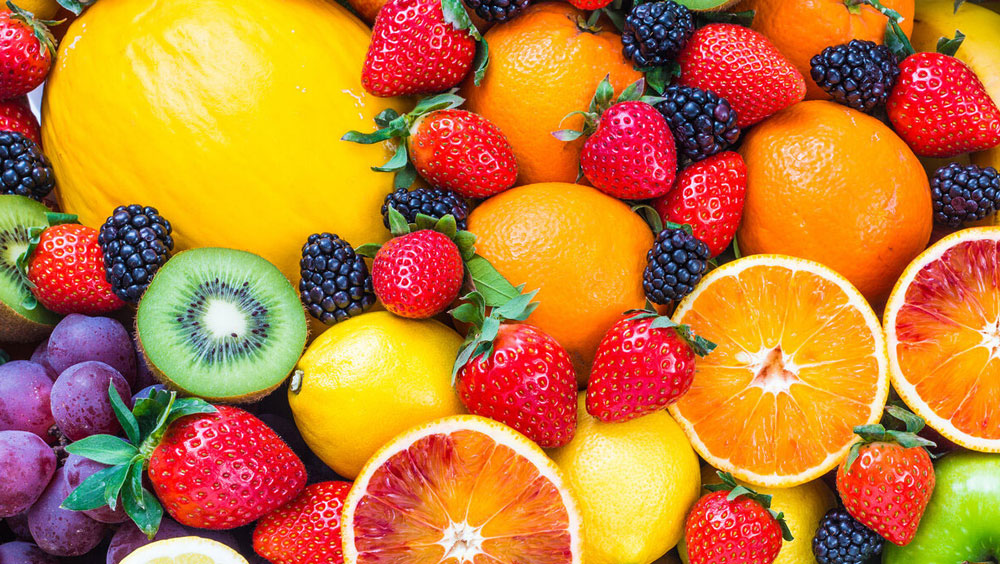Fruits and Their Sugar Content

Fruits are a delicious and healthy part of our diet, providing essential vitamins, minerals, and fiber. However, some fruits have higher natural sugar content than others, which can be important to know, especially for people monitoring their sugar intake. Let's explore which fruits have the most sugar and how to enjoy them while managing your overall sugar consumption.
Mangoes: The Sweet Tropical Treat

Mangoes are incredibly sweet and can contain up to 45 grams of sugar in a medium-sized fruit. This tropical delight is rich in vitamins, particularly vitamin C and vitamin A, making it a nutritious choice. However, due to its high sugar content, it's best enjoyed in moderation, especially if you're watching your sugar intake.
Grapes: Small But Sugary

Grapes are small but pack a sugary punch, with a cup containing about 23 grams of sugar. These tiny fruits are also high in antioxidants like resveratrol, which is good for heart health. While they make a great snack, be mindful of portion sizes to avoid consuming too much sugar.
Cherries: Nature's Candy

Cherries are often referred to as nature's candy due to their high sugar content, with one cup containing about 18 grams. They are also a good source of fiber and vitamin C. Enjoy cherries in moderation to balance their sweet taste with their health benefits.
Bananas: Convenient and Sugary

Bananas are convenient and nutritious, but a medium banana contains around 14 grams of sugar. They are also high in potassium and vitamin B6, making them a great option for a quick energy boost. Keep an eye on portion sizes to manage your sugar intake effectively.
Apples: Crunchy and Sweet

A medium apple has about 19 grams of sugar, making it a sweet and crunchy treat. Apples are rich in fiber, especially if you eat them with the skin. They are a healthy snack option, but it's important to be aware of their sugar content if you're monitoring your diet.
Oranges: Citrusy Sweetness

Oranges are known for their refreshing taste and high vitamin C content, with a medium orange containing around 12 grams of sugar. They are a great source of hydration and nutrients, but be mindful of their sugar levels, particularly if you're enjoying multiple servings.
Pineapples: Tropical and Sugary

One cup of pineapple chunks has about 16 grams of sugar. Pineapples are not only sweet but also high in vitamin C and manganese. Enjoying pineapple in moderation can help you reap its nutritional benefits without overloading on sugar.
Pears: Juicy and Sweet

A medium pear contains about 17 grams of sugar, making it a juicy and sweet fruit option. Pears are a good source of fiber, especially if you eat them with the skin. They can be part of a balanced diet, but it's important to consider their sugar content.
Watermelon: Refreshing and Sugary

Watermelon is refreshing and hydrating, with a high water content, but a cup of diced watermelon still contains about 9 grams of sugar. Watermelon is also rich in vitamins A and C. While it's a great summer treat, keep track of your portions to manage sugar intake.
Lychees: Exotic and Very Sweet

Lychees are an exotic fruit with a very high sugar content, with one cup containing about 29 grams of sugar. They are also high in vitamin C. Due to their high sugar levels, enjoy lychees sparingly to avoid consuming too much sugar.
Managing Sugar Intake from Fruits

To manage sugar intake from fruits, consider the following tips:
- Portion Control: Eat smaller portions of high-sugar fruits to enjoy their taste and benefits without overloading on sugar.
- Balance with Low-Sugar Fruits: Combine high-sugar fruits with low-sugar fruits like strawberries, raspberries, and blackberries to balance your diet.
- Monitor Overall Diet: Be mindful of the total sugar intake from all sources, including other foods and beverages.
Fruits are an essential part of a healthy diet due to their vitamins, minerals, and fiber content. However, for those who need to monitor their sugar intake, such as people with diabetes, it is important to be aware of the sugar content in different fruits and consume them in moderation. Enjoying a variety of fruits can help you maintain a balanced diet while keeping your sugar intake in check.


